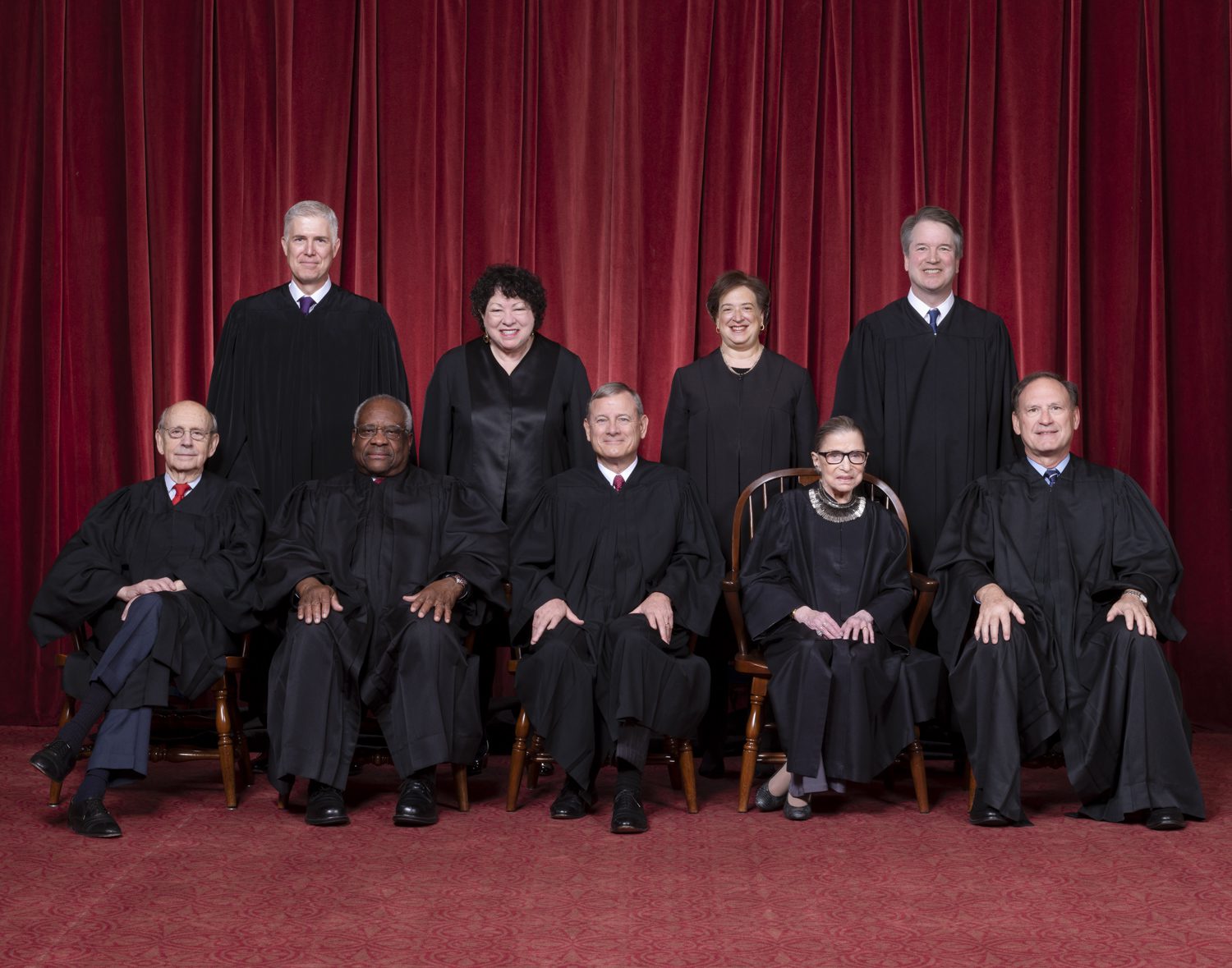easyt65
Diamond Member
- Aug 4, 2015
- 90,307
- 61,079
- 2,645
Do you know WHY legal experts are calling Sullivan's actions 'Unheard Of', 'un-precedented', 'un-believable', etc...?
BECAUSE SULLIVAN IS VIOLAITNG THE LAW, GOING AGAINST LEGAL MANDATE / ESTABLISHED PRECEDNECE
"The U.S. Constitution makes clear that the judiciary has no business second-guessing prosecutorial decisions. That’s what Michael Flynn judge Emmet Sullivan decided to do.
Judge Sullivan announced he would accept amicus briefs, a group of lawyers operating under the moniker Watergate Prosecutors filed a notice of its intent to file an amicus brief. That a group of left-leaning lawyers intended to relitigate Obamagate via the Flynn case wasn’t surprising. What was surprising—no, unbelievable—is what Judge Sullivan did on Wednesday: He entered an order “appoint[ing] The Honorable John Gleeson (Ret.) as amicus curiae to present arguments in opposition to the government’s Motion to Dismiss.”
This order was jaw-dropping for two reasons.
First, the U.S. Constitution makes clear that the judiciary has no business second-guessing prosecutorial decisions. In fact, the very case Judge Sullivan cited for the proposition that he had the inherent authority to appoint an amicus curiae—United States v. Fokker—made clear Sullivan’s order was lawless.
“decisions to dismiss pending criminal charges—no less than decisions to initiate charges and to identify which charges to bring—lie squarely within the ken of prosecutorial discretion.”
’to protect a defendant against prosecutorial harassment . . . when the [g]overnment moves to dismiss an indictment over the defendant’s objection.’” Such review in that case is to guard against “a scheme of ‘prosecutorial harassment’ of the defendant through repeated efforts to bring—and then dismiss—charges.”
Fokker then concluded: “So understood, the ‘leave of court’ authority gives no power to a district court to deny a prosecutor’s Rule 48(a) motion to dismiss charges based on a disagreement with the prosecution’s exercise of charging authority. For instance, a court cannot deny leave of court because of a view that the defendant should stand trial notwithstanding the prosecution’s desire to dismiss the charges, or a view that any remaining charges fail adequately to redress the gravity of the defendant’s alleged conduct. The authority to make such determinations remains with the Executive.”
The Fokker decision was a 2016 decision from the D.C. Circuit Court and, as such, establishes “mandatory precedent,” i.e., precedent that must be followed, by all D.C. district court judges—including Judge Sullivan. Thus, Judge Sullivan’s directive that Judge Gleeson, as amicus curiae, should “present arguments in opposition to the government’s Motion to Dismiss,” cannot stand: It conflicts with controlling circuit court precedent, and more significantly with the U.S. Constitution."
So what NOW?
'While Judge Sullivan has not yet ruled on the government’s Motion to Dismiss, his mere attempt to usurp the executive branch’s authority must be addressed, and now. The government should, as it did in Fokker, seek a writ of mandamus from the D.C. Circuit, directing the charge against Flynn be dismissed.
The government should also seek reassignment of the case on remand, meaning that when the case returns to the lower court for dismissal of the charge, it goes to a different judge.'
SULLIVAN'S OBVIOUS ATTEMPT TO THWART THE DISMISAL OF THE CASE
The same day Judge Sullivan named Judge Gleeson to serve in the amicus curiae role, the Washington Post ran an op-ed co-authored by Gleeson, entitled, “The Flynn case isn’t over until the judge says it’s over.” “The Justice Department’s move to dismiss the prosecution of former national security adviser Michael Flynn does not need to be the end of the case—and it shouldn’t be,” he opened. Then, after misrepresenting the Rule 48(b)’s “leave of court” requirement, Gleeson suggests dismissal of the Flynn case would be inappropriate because “the record reeks of improper political influence.”
No, what reeks is Judge Sullivan’s selection of a clearly biased “friend of the court” who appears to have already pre-judged the prosecutor’s motive and found it improper. Judge Sullivan surely knew of Gleeson’s bent and just as surely shares it.
There were several earlier glimpses of Judge Sullivan’s bias.

 thefederalist.com
thefederalist.com
BECAUSE SULLIVAN IS VIOLAITNG THE LAW, GOING AGAINST LEGAL MANDATE / ESTABLISHED PRECEDNECE
"The U.S. Constitution makes clear that the judiciary has no business second-guessing prosecutorial decisions. That’s what Michael Flynn judge Emmet Sullivan decided to do.
Judge Sullivan announced he would accept amicus briefs, a group of lawyers operating under the moniker Watergate Prosecutors filed a notice of its intent to file an amicus brief. That a group of left-leaning lawyers intended to relitigate Obamagate via the Flynn case wasn’t surprising. What was surprising—no, unbelievable—is what Judge Sullivan did on Wednesday: He entered an order “appoint[ing] The Honorable John Gleeson (Ret.) as amicus curiae to present arguments in opposition to the government’s Motion to Dismiss.”
This order was jaw-dropping for two reasons.
First, the U.S. Constitution makes clear that the judiciary has no business second-guessing prosecutorial decisions. In fact, the very case Judge Sullivan cited for the proposition that he had the inherent authority to appoint an amicus curiae—United States v. Fokker—made clear Sullivan’s order was lawless.
“decisions to dismiss pending criminal charges—no less than decisions to initiate charges and to identify which charges to bring—lie squarely within the ken of prosecutorial discretion.”
’to protect a defendant against prosecutorial harassment . . . when the [g]overnment moves to dismiss an indictment over the defendant’s objection.’” Such review in that case is to guard against “a scheme of ‘prosecutorial harassment’ of the defendant through repeated efforts to bring—and then dismiss—charges.”
Fokker then concluded: “So understood, the ‘leave of court’ authority gives no power to a district court to deny a prosecutor’s Rule 48(a) motion to dismiss charges based on a disagreement with the prosecution’s exercise of charging authority. For instance, a court cannot deny leave of court because of a view that the defendant should stand trial notwithstanding the prosecution’s desire to dismiss the charges, or a view that any remaining charges fail adequately to redress the gravity of the defendant’s alleged conduct. The authority to make such determinations remains with the Executive.”
The Fokker decision was a 2016 decision from the D.C. Circuit Court and, as such, establishes “mandatory precedent,” i.e., precedent that must be followed, by all D.C. district court judges—including Judge Sullivan. Thus, Judge Sullivan’s directive that Judge Gleeson, as amicus curiae, should “present arguments in opposition to the government’s Motion to Dismiss,” cannot stand: It conflicts with controlling circuit court precedent, and more significantly with the U.S. Constitution."
So what NOW?
'While Judge Sullivan has not yet ruled on the government’s Motion to Dismiss, his mere attempt to usurp the executive branch’s authority must be addressed, and now. The government should, as it did in Fokker, seek a writ of mandamus from the D.C. Circuit, directing the charge against Flynn be dismissed.
The government should also seek reassignment of the case on remand, meaning that when the case returns to the lower court for dismissal of the charge, it goes to a different judge.'
SULLIVAN'S OBVIOUS ATTEMPT TO THWART THE DISMISAL OF THE CASE
The same day Judge Sullivan named Judge Gleeson to serve in the amicus curiae role, the Washington Post ran an op-ed co-authored by Gleeson, entitled, “The Flynn case isn’t over until the judge says it’s over.” “The Justice Department’s move to dismiss the prosecution of former national security adviser Michael Flynn does not need to be the end of the case—and it shouldn’t be,” he opened. Then, after misrepresenting the Rule 48(b)’s “leave of court” requirement, Gleeson suggests dismissal of the Flynn case would be inappropriate because “the record reeks of improper political influence.”
No, what reeks is Judge Sullivan’s selection of a clearly biased “friend of the court” who appears to have already pre-judged the prosecutor’s motive and found it improper. Judge Sullivan surely knew of Gleeson’s bent and just as surely shares it.
There were several earlier glimpses of Judge Sullivan’s bias.

Constitution Requires Judge’s Lawless Order Against Flynn Be Overturned
The Constitution makes clear that the judiciary has no business second-guessing prosecutorial decisions. That’s what Michael Flynn's judge decided to do.




